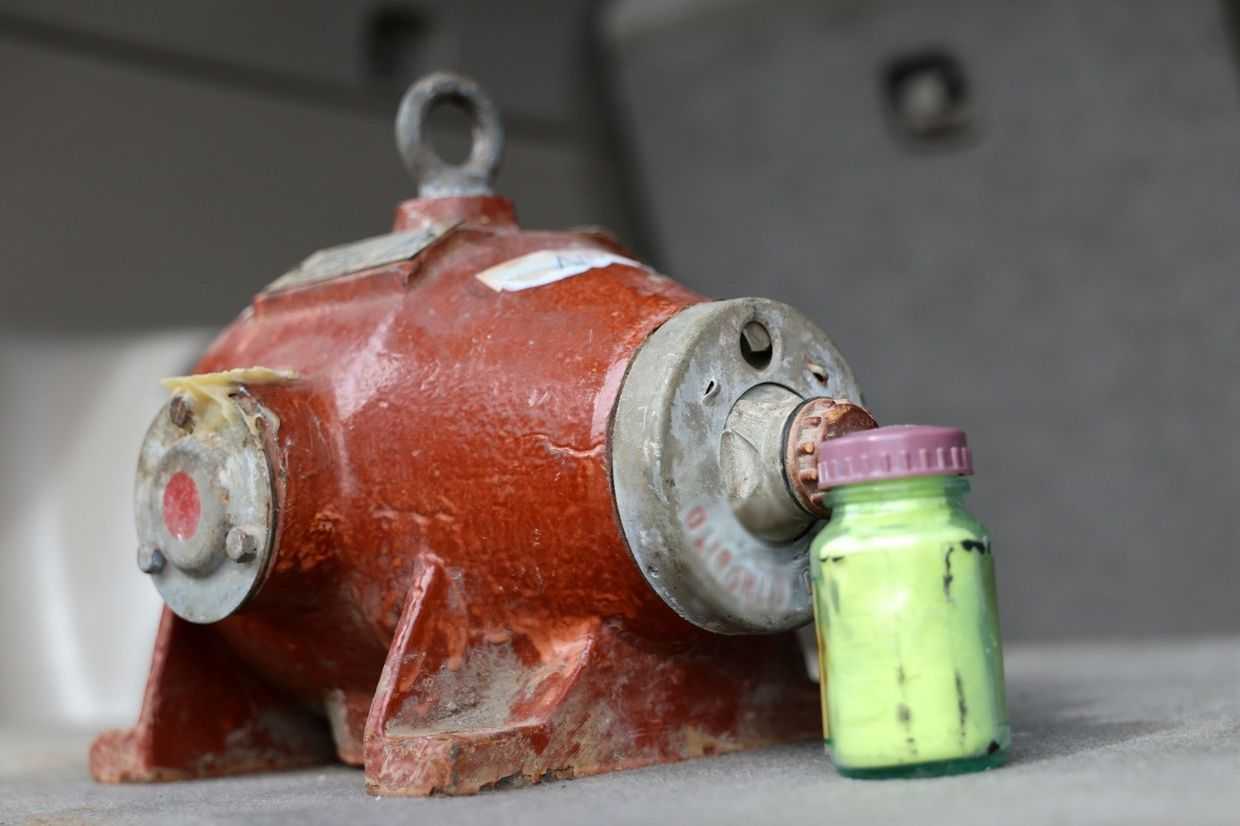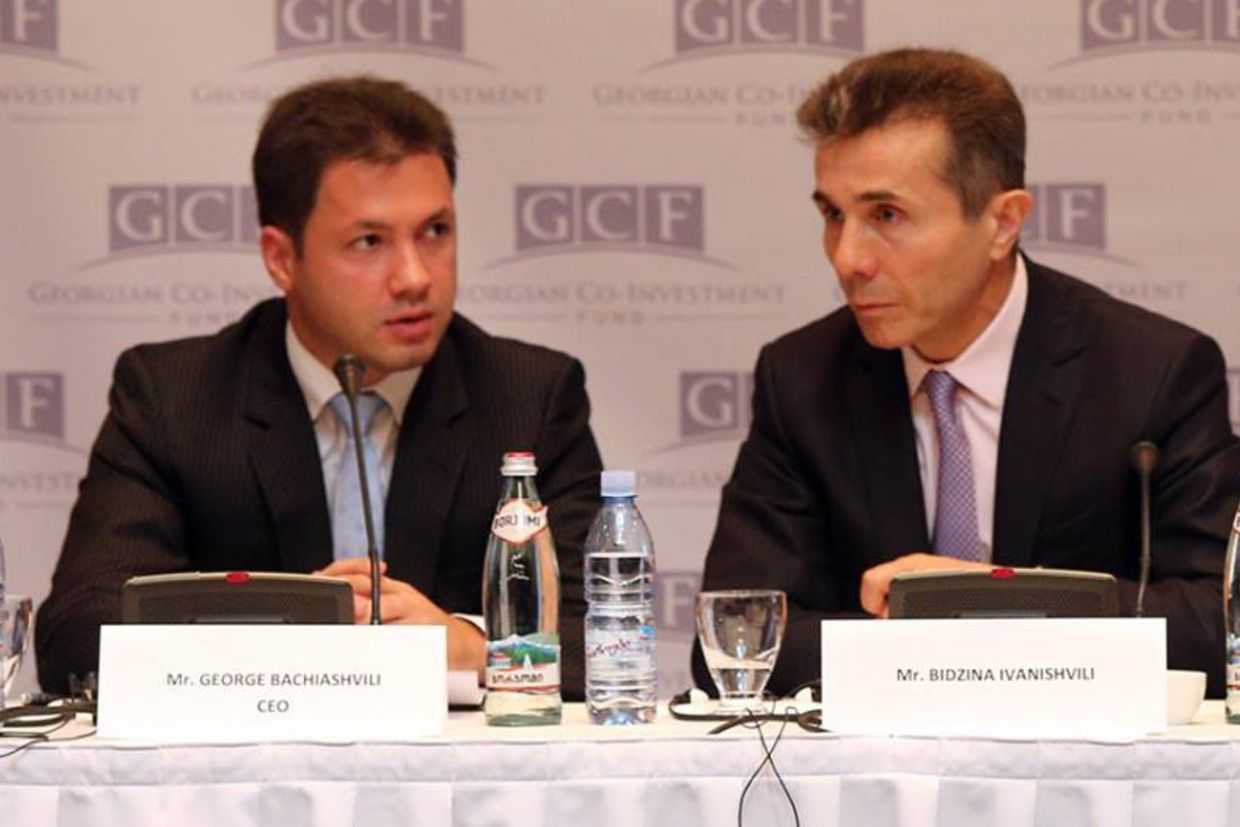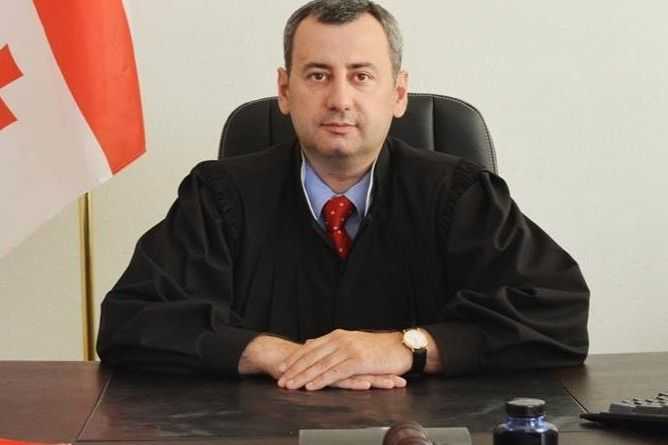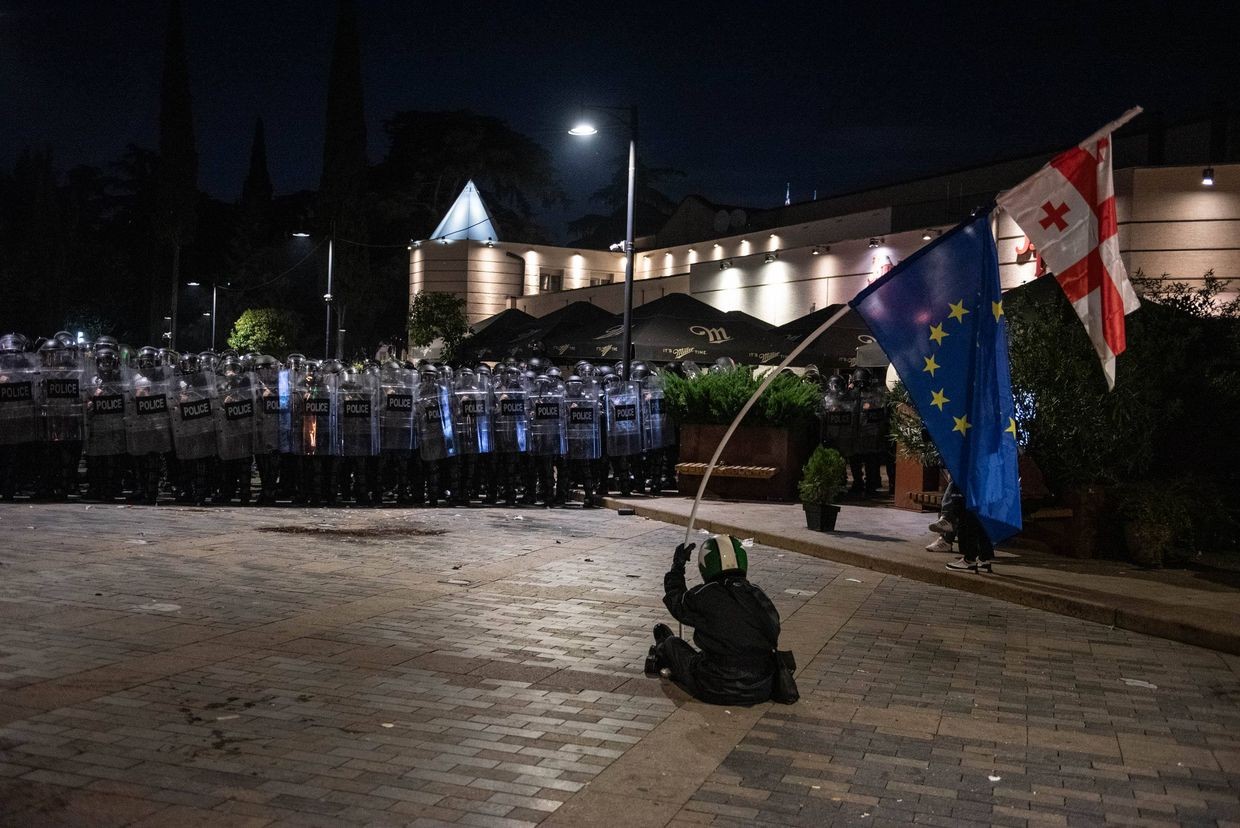
After Saturday night’s clashes in Tbilisi, the authorities announced further arrests, with the Interior Ministry emphasising increased pressure on anti-government protests in the coming days.
According to the latest reports, five opposition figures have been detained in connection with the demonstration and subsequent clashes that took place on the day of the countrywide municipal elections.
The 4 October demonstration had been announced for many weeks by several opposition figures. It was generally conceived as an anti-government rally set to coincide with the municipal elections, which many opposition parties had boycotted.
Over time, its initiators branded the event as a ‘peaceful revolution’ and a ‘peaceful overthrow’, with the ambitious goal of ending the ruling Georgian Dream party’s 13-year rule in a single day.
‘The declared goal of [yesterday’s rally] was the overthrow of the government,’ the Interior Ministry said in its midday statement on Sunday.
The ministry added that work would continue ‘to identify the lawbreakers and ensure the enforcement of the law’, while ‘any gathering held today or in the coming days’ would be regarded as a ‘continuation of yesterday’s attempt’.
‘We will take appropriate measures to ensure that public order and security are not threatened’, the statement read.
It remains unclear whether this means the ministry intends to intervene in the relatively smaller everyday anti-government protests in central Tbilisi, outside the parliament, which have continued since 28 November 2024, the day when the ruling Georgian Dream party announced the suspension of Georgia’s EU bid.
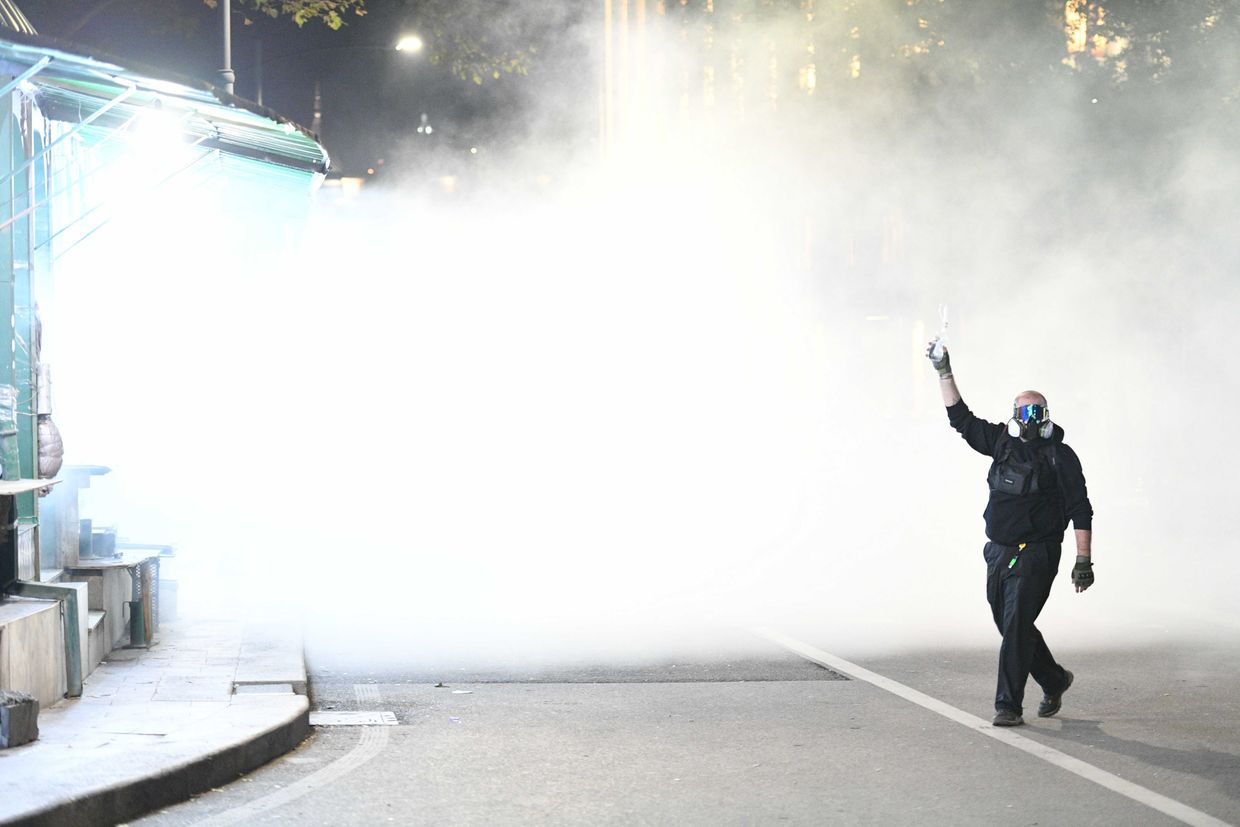
In addition to the possible restrictions on protests, the authorities have openly announced plans to detain more demonstrators from Saturday’s protests than are currently in custody.
‘Anyone who took part in the violence is, without exception, a participant in the attempt to overthrow the government’, Prime Minister Irakli Kobakhidze said during a late-night briefing on Saturday, adding that ‘these people should expect surprises in the coming days’.
He also hinted that the state would now have to arrest ‘far more than 30 shameless offenders’ — a reference to the number of people he himself has said were detained in the early phase of the ongoing protests.
Kobakhidze further emphasised that the state now has greater resources to identify citizens than it did during previous waves of protests.

Interior Minister Gela Geladze also hinted that the number of detainees would increase. When asked by the press whether that would happen, Geladze replied, ‘Of course’.
Authorities allege weapons found as claimed links to Ukraine increase
In the latest development, the State Security Service of Georgia (SSG) announced that it had discovered ‘combat materials’ in a forest near Tbilisi, which, the agency claimed, were intended for use during the 4 October rally.
According to the agency, it managed to ‘neutralise the circle of individuals who were supposedly planning to transport the said combat materials and explosives into central Tbilisi’.
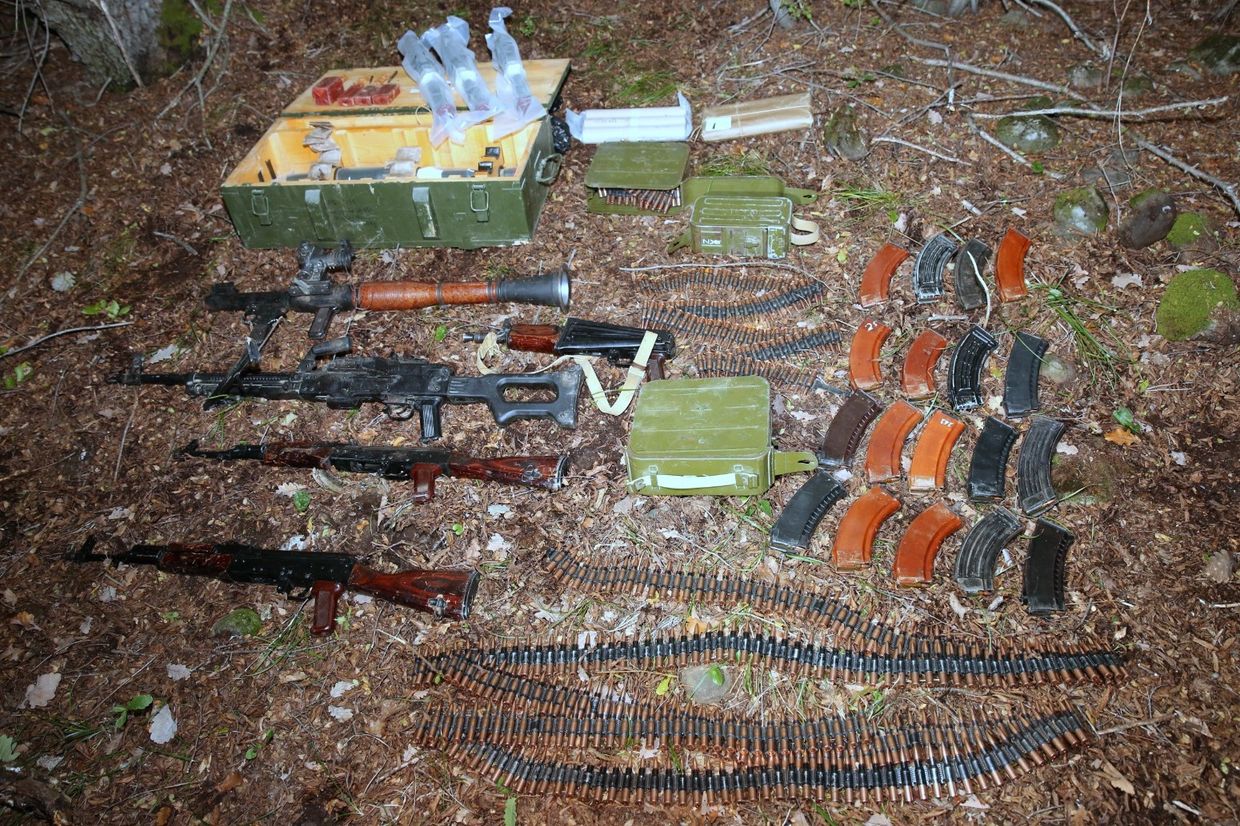
The SSG also stated that the materials had been acquired by a Georgian citizen currently wanted by authorities, ‘on the instructions of a Georgian member of a military unit operating in Ukraine’. The agency has previously accused Georgians fighting in Ukraine of attempting to destabilise Georgia.
The allegations of Ukrainian involvement were echoed by Russian politicians and propaganda figures, with MP Aleksandr Voloshin, from Russian-occupied Ukraine, referencing an earlier incident in September in which Ukrainian nationals were arrested for smuggling explosives into Georgia. He added that it was evidence that Ukraine is a ‘threat’ to countries bordering Russia. Voloshin made the comments before the SSG’s announcement.
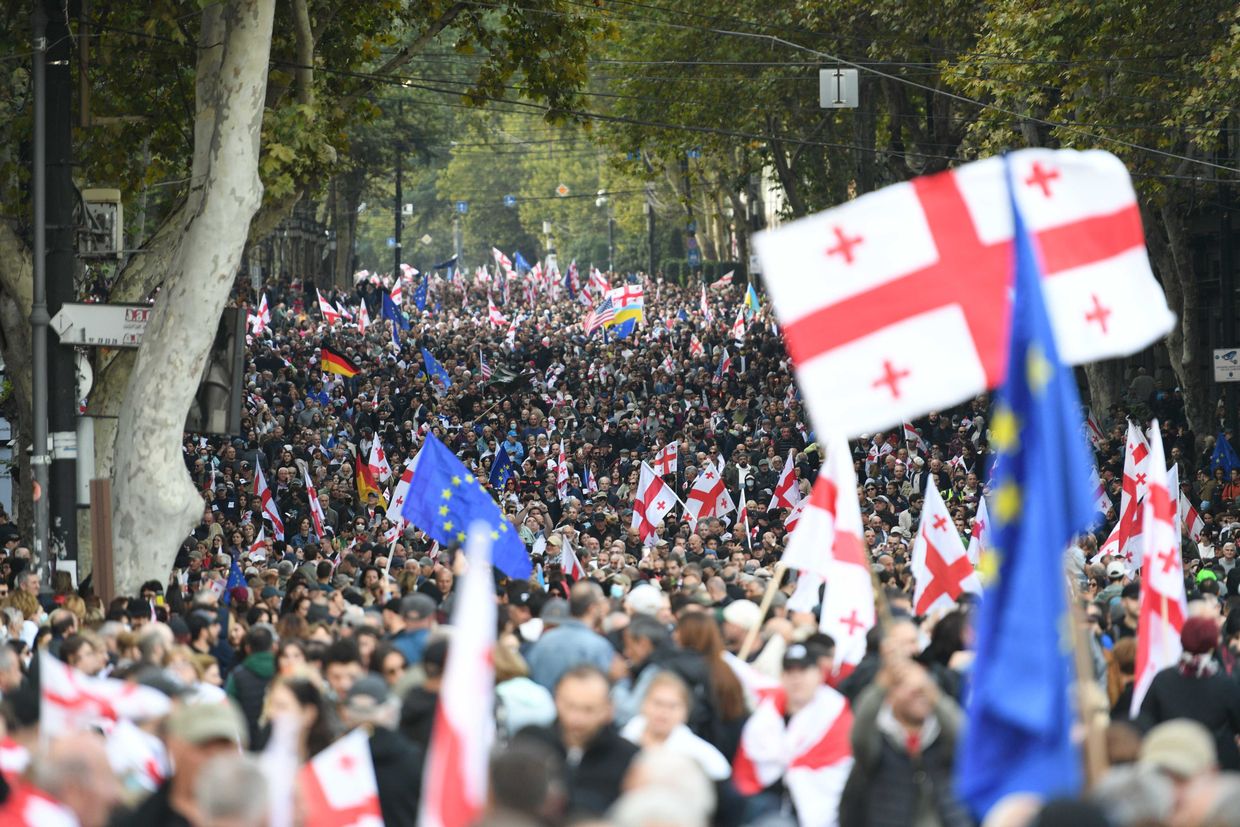
What happened on 4 October?
On Saturday afternoon, tens of thousands gathered in Tbilisi’s Freedom Square, where one of the main initiators, opera singer Paata Burchuladze, declared from the stage that Georgian Dream was an illegitimate government and that power should be transferred to the people.
This was followed by opposition politician Murtaz Zodelava’s call for male demonstrators to march toward the nearby presidential residence on Atoneli Street, which some protesters later attempted to storm. In response, police used tear gas, water cannons, and pepper spray. Protesters built barricades, and sporadic clashes around the residence continued late into the night.

The rally apparently suffered from a lack of coordination, with demonstrators complaining about the absence of a clear plan from the organisers.
There were also concerns about poor communication between those near the presidential residence and others who had later moved to the parliament building before gradually dispersing.
Later that, police detained both Burchuladze and Zodelava, as well as the three other individuals he had introduced a few hours earlier as members of the rally’s ‘organising committee’.
Among those arrested were Irakli Nadiradze, a member of the opposition United National Movement (UNM) party; Paata Manjgaladze of Strategy Aghmashenebeli, a partner party of the UNM; and retired colonel Lasha Beridze.
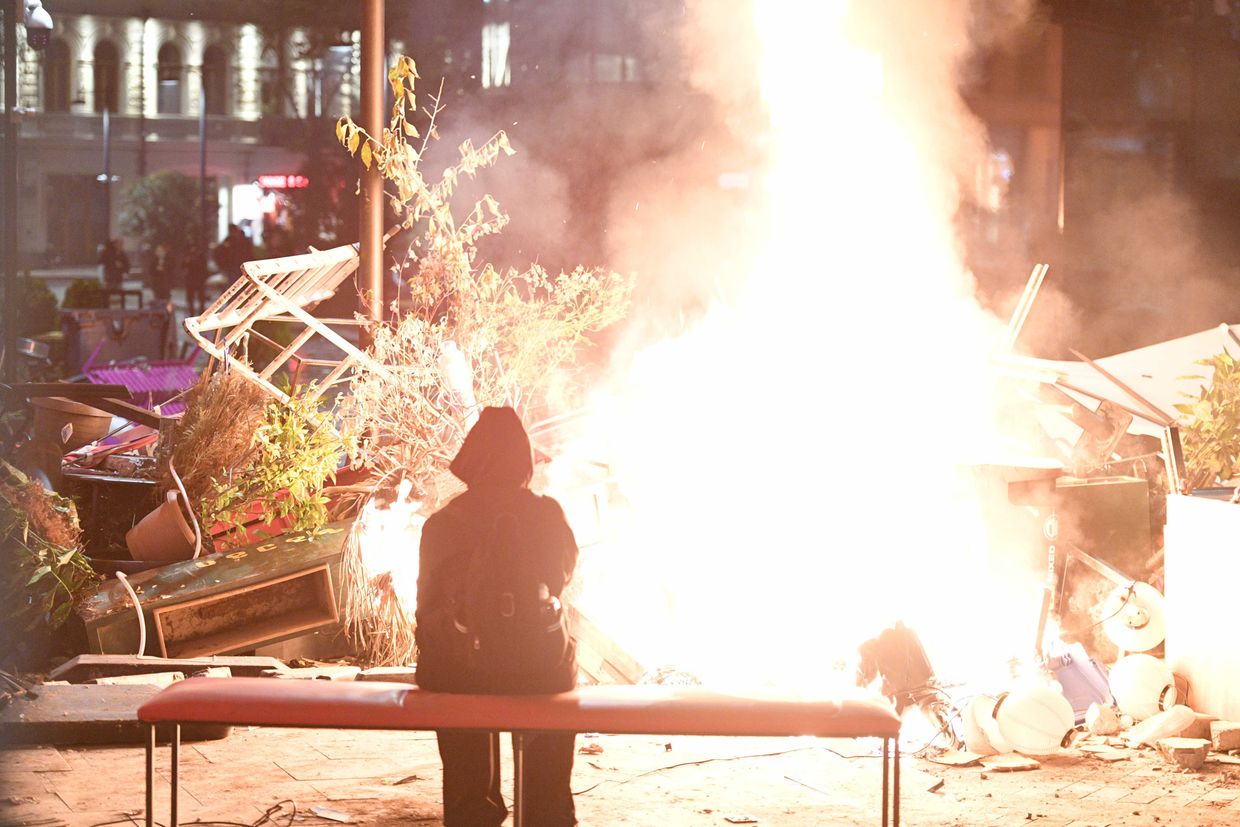
The Interior Ministry said they had launched an investigation into the day’s events under four articles: incitement to violently overthrow the constitutional order or the government, group violence, seizure or blocking of a strategic facility, and damage or destruction of property.
According to the Health Ministry, six protesters and 21 police officers were hospitalised following the protests. On Sunday, Geladze said that two police officers remained in the hospital, with their condition described as ‘relatively stable’.
The 4 October demonstration coincided with the 311th day of continuous anti-government protests that have been ongoing since the government’s EU U-turn, without clear organisers or party affiliation.
The first phase of the protests was marked both by police violence and attacks on protesters and journalists by unidentified masked individuals.
Since the start of the protests, police have detained hundreds of people, with criminal cases launched against more than 50 of them. Many have already been convicted, and their release remains one of the protesters’ key demands.






